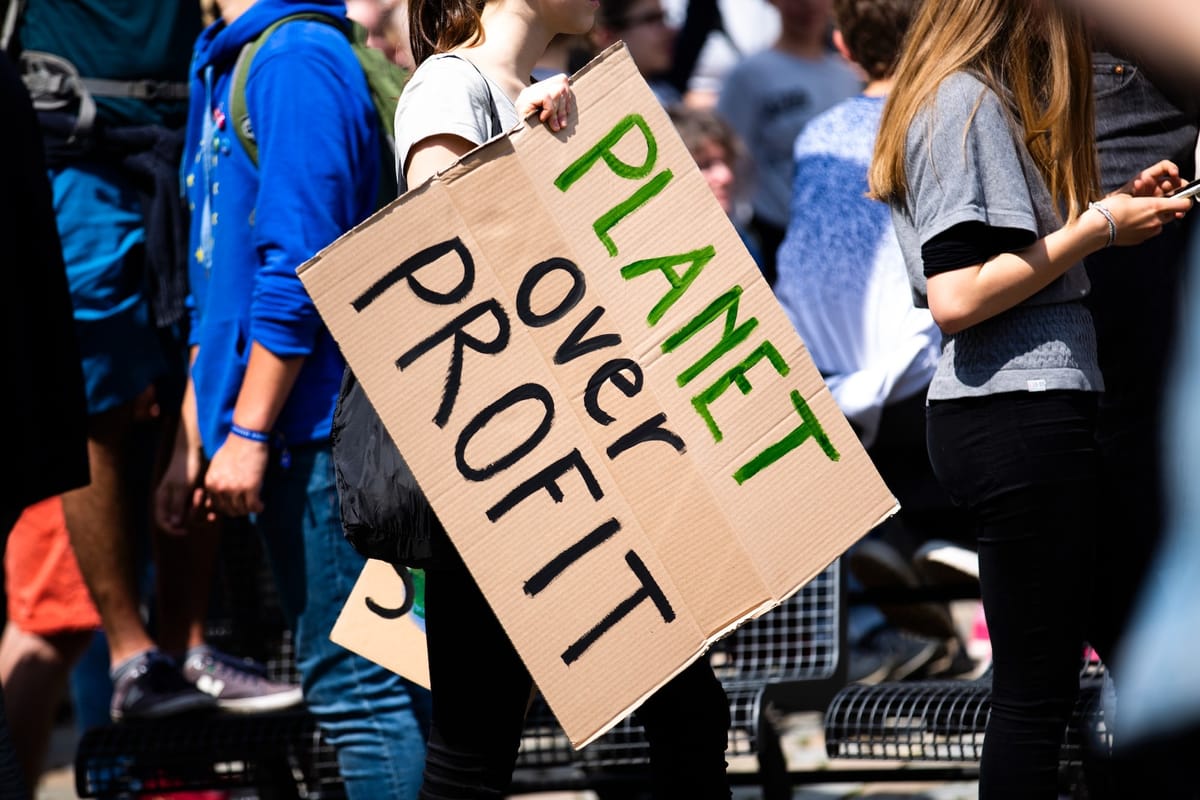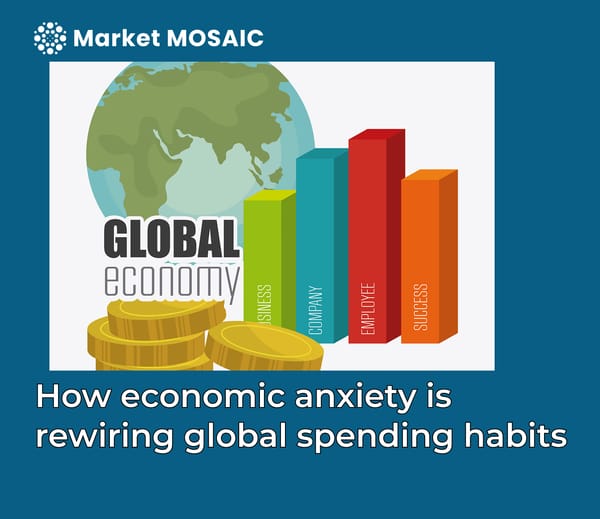Climate Change: Navigating the Crossroads of Innovation and Sustainability in the FMCG Sector

As the world grapples with the escalating challenges of climate change, its far-reaching consequences extend beyond environmental concerns, profoundly impacting various industries, including the fast-moving consumer goods (FMCG) sector. Climate change presents a formidable double-edged sword for FMCGs, simultaneously acting as a major contributor to greenhouse gas emissions and a significant disruptor of their operations and supply chains. While FMCGs contribute to the emission of greenhouse gases through their vast manufacturing and distribution networks, they are also at the receiving end of climate change's adverse effects, facing disruptions in raw material sourcing, transportation networks, and consumer behavior.
The intricate relationship between climate change and FMCGs highlights the urgent need for sustainable innovation within the industry. By adopting eco-friendly practices, developing plant-based alternatives, embracing circular packaging, and transitioning to renewable energy sources, FMCGs can not only mitigate their environmental impact but also adapt to the changing climate landscape. Sustainable innovation has become a defining factor for the future of FMCGs, enabling them to thrive in a world increasingly shaped by climate change. Here is how the industry is impacted by climate change:
Impact on supply chains
One of the most significant impacts of climate change on the FMCG industry is its disruption of supply chains. Climate change is causing more extreme weather events, such as droughts, floods, and wildfires, which are damaging crops and disrupting transportation networks. This is making it more difficult and expensive for FMCG companies to source raw materials and get their products to market.
Impact on consumer behavior
Climate change is also changing consumer behaviour. Consumers are becoming more aware of the environmental impact of their purchases, and they are increasingly demanding sustainable products. This puts pressure on FMCG companies to reduce their environmental footprint and develop more sustainable products and packaging.
Impact on costs
Climate change is also increasing the costs of doing business for FMCG companies. The cost of energy, water, and other resources is rising, and the cost of insurance is also increasing due to the increased risk of natural disasters. This is putting pressure on FMCG companies to find ways to improve their efficiency and reduce their costs.
Impact on innovation
Climate change is also driving innovation in the FMCG industry. Companies are developing new technologies and products that can help them reduce their environmental impact and meet the needs of consumers who are concerned about climate change. For example, some companies are developing plant-based alternatives to meat and dairy products, and others are developing new, more sustainable packaging materials.
How Climate Change is Influencing Innovation in the FMCG Sector
Climate change is not only a challenge but also a catalyst for innovation in the FMCG sector. As companies adapt to the changing climate and address consumer demands for sustainability, they are driving innovation that benefits the environment, society, and their long-term growth.
Let's explore some key areas where climate change is influencing innovation in the FMCG sector:
Sustainable Packaging Solutions: Packaging waste is a major environmental concern. Climate change is prompting FMCG companies to rethink their packaging strategies, seeking sustainable alternatives that reduce waste, minimize environmental impact, and enhance recyclability. Bioplastic packaging, compostable materials, and reusable packaging options are gaining traction.
Plant-Based Food Revolution: The growing awareness of the environmental impact of meat production is driving a shift towards plant-based alternatives to meat and dairy products. FMCG companies are developing innovative meat substitutes using plant-based ingredients like soy, peas, and lentils, offering consumers healthier and more sustainable options while reducing their reliance on animal agriculture.
Circular Economy Principles: The concept of a circular economy, where resources are continuously reused and recycled, is influencing innovation in the FMCG sector. Companies are exploring closed-loop systems, designing products for recyclability, and extending product lifespans to minimize resource depletion.
Sustainable Sourcing and Agriculture: Climate change is disrupting traditional agricultural practices, leading to water scarcity, extreme weather events, and unpredictable crop yields. FMCG companies are responding by investing in sustainable sourcing strategies, such as regenerative agriculture techniques that improve soil health, water conservation practices, and collaborations with local farmers to promote environmentally friendly farming practices and reduce pesticide use.
Transparency and Traceability: Consumers are demanding greater transparency from FMCG companies regarding their supply chains and environmental practices. This demand is driving innovation in traceability technologies, enabling companies to track the origins of their ingredients and demonstrate their sustainability efforts.
Energy Efficiency and Renewable Energy: Rising energy costs and the need to reduce greenhouse gas emissions are leading FMCG companies to adopt energy-efficient practices and transition towards renewable energy sources. This includes optimizing production processes, investing in energy-efficient equipment, and sourcing electricity from renewable sources like solar and wind power.
Sustainable Transportation and Logistics: Transportation and logistics contribute significantly to greenhouse gas emissions, prompting FMCG companies to optimize their supply chains and adopt eco-friendly transportation solutions. This involves using fuel-efficient vehicles, optimizing delivery routes, and exploring alternative transportation modes like electric vehicles or rail transport.
Overall, climate change is having a significant impact on the FMCG industry. The industry is a major contributor to greenhouse gas emissions, but it is also heavily impacted by climate change. The effects of climate change on the FMCG industry are complex and far-reaching, and they are likely to become more severe in the future.
Here are some specific examples of how climate change is impacting the FMCG industry:
- Droughts are causing water shortages, which is making it more difficult to grow crops and produce food and beverages.
- Floods are damaging crops and infrastructure, disrupting supply chains, and increasing costs.
- Wildfires are destroying crops and forests, which is reducing the availability of raw materials.
- Rising sea levels are threatening coastal infrastructure, which is disrupting supply chains and increasing costs.
The FMCG industry is taking steps to adapt to climate change, however, this is a complex challenge. The industry needs to find ways to reduce its environmental footprint, develop more sustainable products and packaging, and adapt its supply chains to the new realities of climate change. This is not without its challenges such as:
- The high cost of developing new technologies: It can be expensive to develop new technologies that can help to address climate change. This can make it difficult for FMCG companies to invest in innovation.
- The need to change consumer behavior: FMCG companies need to change consumer behavior to reduce their environmental impact. This can be a challenge, as consumers are often resistant to change.
- The need for government support: Governments can play a role in supporting innovation in the FMCG sector by providing funding and incentives for companies that are developing sustainable products and technologies albeit this is a long shot.
Climate change is not just an environmental challenge; it is also a significant business driver for the FMCG sector. By embracing sustainable innovation, companies can not only reduce their environmental impact but also gain a competitive edge by catering to the growing demand for eco-friendly products and practices. As climate change intensifies, innovation will play a crucial role in shaping the future of the FMCG industry, ensuring its long-term sustainability and resilience.





